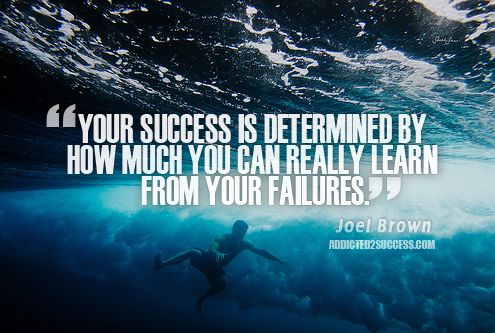
The investment business is worth hundreds of millions of dollars a
year. Organizations spend millions to get your money and hope you
believe their investment strategy is the best.
We are inundated with magazines, 24-7 investment channels, and investment “
experts”
on every aspect of the market. All of this is irritating because
rarely does anyone honestly tell you the best investment decision you
can make.
There is no doubt you can earn a decent return over time in a well
diversified portfolio. That’s no secret. My long term money is
invested in the market.
However, the best investment no one talks about is investing in
yourself. Time and time again this is absolutely the best investment you can make in your life.
I’m not simply talking about taking more college courses or mandatory
trainings from your employer. I am referring to making a commitment to
learn new skills, improve old ones, and changing with the times.
When you make the commitment to invest in yourself, the return on investment will begin to multiply exponentially over time –
similar to compound interest.
“Success Doesn’t come to you, you go to it.” – Marie Colling
At First you may not notice the
payoff from the investment, but there will be a time when your
growth will sky rocket.
Investing in yourself can lead to promotions at work, starting new
businesses (like myself), better health, improving relationships, and
much more. It is really the investment that keeps on paying dividends.
Most people go to college then believe there is no reason to learn
much more. If you want to find success, you need to continue to
grow.
There are three reasons why we stop learning:
cost, time, and laziness. Since I know the people reading this article aren’t lazy, the main reasons must be time and money.
Luckily we live in the best time ever to continue our education. We
have access to learning at our fingertips that our ancestors only
dreamed of having.
Let’s discuss 5 ways to invest in yourself.
1. Podcasts
Most of us have a commute to work or a mundane activity we must do
each week (i.e. clean the house, mow the grass, exercise, ect). Instead
of turning on Pandora Radio to the 90s mix, look into Podcasts.
Podcasts are the
best way to hear inspiring stories, learn new skills, or brush up on your own industry.
Jump on iTunes or Sticher and you can find topics that cover everything from business to comedy.
2. Online Courses
Want to learn to code? Improve your marketing skills? Start your own business?
You can do that today because there are courses at your fingertips for
no charge. YouTube is filled with great information. If you only watched Ted Talks on YouTube you would dramatically
change your life.
You can take real courses from the Khan Academy. Even MIT has courses you can take for free.
If you don’t mind paying for something, then check out Udemy,
Lynda.com, or Skillshare. I learned how to place Facebook ads from
Udemy and it was one of the best courses I ever took (
and I have my MBA).
There are also a number of courses taught by people who specialize in
a particular subject. You can find some great courses on copy writing,
marketing, starting a blog, and much more.
“Your life doesn’t get better by chance, it gets better by change.” – Jim Rohn
3. Library
Most people don’t read books because they don’t want to purchase them
or don’t want to make the trek to the library. According to Zig
Ziglar, 58% of all people in our society, when they finish their formal
education,
never read another meaningful book.
Well, it’s not your grandfather’s library anymore.
You can rent books from the library and read them on your Kindle or
iPad. There is a large number of books that you can check out and have
for two or three weeks.
You can also rent
digital books and play them on your device of choice.
Do what most people don’t – read books and become an expert in a topic.
4. Join a Group
Maybe you’re an introvert (
like myself) and want to meet more people. Then join an organization. I don’t care where you live, there are groups to join.
A few sites to check out are Meetup and LinkedIn. You can find groups to join that have local meetings.
Just in my area you can join groups that discuss blogging, business, marketing, running clubs, and more.
Also, consider looking into Toastmasters International. This is
something on my list of things to do because it is a phenomenal club.
Learning to speak in front of groups is a skill that everyone could
improve.

5. Go to a Seminar/Conference
A great way to learn more about your industry or break into a
new industry is attend a seminar or conference. Not only will you learn a great deal, but you can also meet a number of new people.
If you don’t have the money to attend a conference, then try to be in
the area when the conference will be held and attend meet ups. That way
you can meet a lot of new people and start to foster more relationships
in the industry.
More at: http://addicted2success.com/life/5-ways-to-invest-in-yourself/









